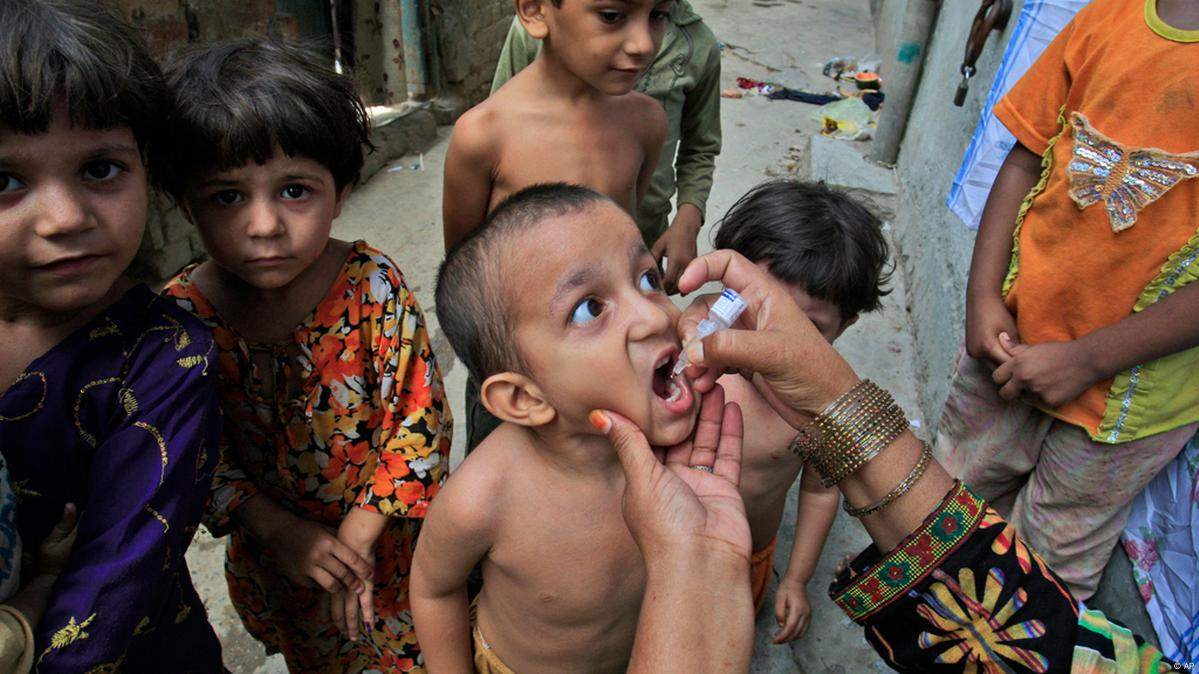Pakistan continues to face a significant public health challenge as polio cases persist, with the 2024 tally reaching 55 confirmed cases. Despite ongoing vaccination efforts and international support, the virus remains a formidable threat.
The recent detection of Wild Poliovirus Type 1 (WPV1) in the districts of Dera Ismail Khan, Zhob, and Jaffarabad underscores the urgency of addressing not only medical but also social barriers to eradication.
Persistent Outbreaks in Key Regions
Dera Ismail Khan, located in the Khyber Pakhtunkhwa province, has reported six cases this year. This region, along with Balochistan’s Zhob and Jaffarabad districts, has become a focal point for new infections.
Zhob reported three cases, while Jaffarabad confirmed two. These areas face unique challenges, including difficult terrain, security concerns, and a population often resistant to vaccination campaigns.
Khyber Pakhtunkhwa and Balochistan have long been hotspots for polio. Historical distrust and logistical difficulties in these regions have compounded the problem.
Polio workers face threats to their safety, and campaigns are often met with suspicion. Many families refuse vaccinations due to cultural misconceptions and fears. Health authorities struggle to ensure that every child is reached, especially in remote or conflict-affected areas.
Read : Pakistani Fan Asked to Leave Stadium for Showing Imran Khan’s Poster: Watch
Efforts by the Pakistani government and international organizations, including the World Health Organization (WHO), to control the spread of polio have been extensive.
Read : Pakistan’s Gender Gap Index Hits Rock Bottom: Ranks 145 out of 146
Mass vaccination campaigns are regularly launched, but their impact remains limited due to resistance and logistical hurdles. The latest cases indicate that much more needs to be done to eliminate the virus completely.
Factors Contributing to Resistance
One of the significant obstacles to eradicating polio in Pakistan is the widespread resistance to vaccination. This resistance has deep historical roots. The most notable incident was the 2011 operation by the US Central Intelligence Agency (CIA), which used a fake hepatitis vaccination campaign to locate Osama Bin Laden in Abbottabad.
This event created a deep mistrust of immunization programs among the Pakistani population. Many citizens began to view vaccination efforts with suspicion, seeing them as tools for espionage rather than public health initiatives.
Religious and cultural factors also play a critical role. Some religious leaders propagate myths that polio vaccines contain ingredients prohibited in Islam, such as pork and alcohol.

These misconceptions have fueled fear and misinformation, leading many families to refuse vaccinations for their children. The belief that the vaccine may cause sterility or harm children’s health further complicates the situation.
Misinformation spreads quickly, especially in rural areas where education levels are low. Campaigns to educate the public about the safety and importance of vaccinations have had mixed results. Although some progress has been made, overcoming deeply entrenched beliefs remains a significant challenge.
The Way Forward: Challenges and Solutions
Eradicating polio in Pakistan requires a multifaceted approach. First and foremost, the government must strengthen its commitment to vaccination campaigns. This involves ensuring the safety of health workers, who often risk their lives to deliver vaccines.
Many polio workers have been targeted and even killed, especially in regions like Khyber Pakhtunkhwa and Balochistan. Providing adequate security and support for these workers is crucial to the success of vaccination efforts.
Community engagement is another essential component. Building trust with local communities can help address resistance and misinformation. Religious leaders and community influencers should be involved in public health campaigns.
By educating these leaders about the importance of polio vaccination, they can become advocates within their communities, helping to dispel myths and encourage participation.
Education and awareness programs need to be expanded. These programs should focus on the safety and efficacy of the polio vaccine, countering the false narratives that have taken root.

Schools, mosques, and community centers can serve as platforms for these educational efforts. Media campaigns, including radio and television broadcasts, can also play a crucial role in reaching a broader audience.
International support remains vital. Organizations like the WHO and UNICEF provide not only funding but also technical assistance. However, their efforts must be aligned with local realities.
Understanding the cultural and social context of regions like Khyber Pakhtunkhwa and Balochistan can help tailor interventions to be more effective.
The Pakistani government must also address the underlying issues that contribute to polio’s persistence. This includes improving healthcare infrastructure and ensuring that even the most remote areas have access to medical services.
Better sanitation and access to clean water can help prevent the spread of the virus. Polio is transmitted through contaminated water, so improving hygiene practices is a crucial preventive measure.
While Pakistan has made significant strides in its fight against polio, the recent rise in cases highlights the ongoing challenges. Addressing resistance to vaccination, ensuring the safety of health workers, and engaging communities are all critical steps in eradicating this debilitating disease. With sustained effort and international collaboration, Pakistan can hope to join the rest of the world in becoming polio-free.

